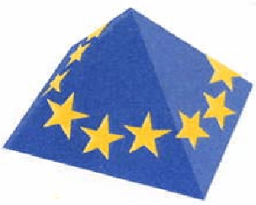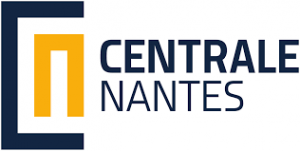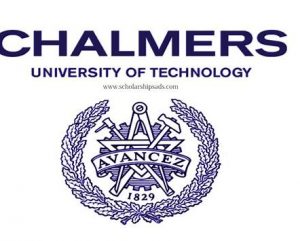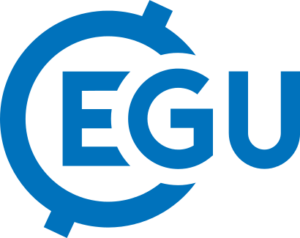Home » Posts tagged 'geostructures'
Tag Archives: geostructures
PhD and Postdoc opportunities
PhD Thesis at Centrale Nantes
A thesis subject is available at Centrale Nantes on modeling of costal erosion. Interested candidate should postulate on the website of Université Bretagne Loire as indicated in this link.
PhD and Postdoc opportunities at Chalmers University of Technology
The Geotechnics Research Group at Chalmers University of Technology (Gothenburg, Sweden) is looking for PhD students and post-docs in computational geomechanics. Deadline for applications is April 30, 2022. More information on the following links.
- PhD student in multiphysics modelling of geostructures in FEniCSx: link.
- Postdoc in multiphysics modelling of geostructures in FEniCSx: link.
- Postdoc in computational geomechanics – micromechanics of natural clays: link.
PhD Student at niversity
Ghent University offer a 4-year PhD researcher position within the bilateral cooperation FWO research project “Mechanisms of rockmass instability in co-mining of deep mineral and geothermal energy considering spatio-temporal distribution of stress and temperature”, in collaboration with the Central South University (China). Tentative start date: 1 July 2022. More information on this link.
Sondaggio sull’importanza degli impatti dei cambiamenti climatici sulle geostrutture in Europa
Vi trasmettiamo il seguente messaggio da parte del gruppo di lavoro sui cambiamenti climatici della European Large Geotechnical Institutes Platform.
———-
Avviato nell’aprile 2018, il Working Group on Climate Change Adaptation (WG CCA) è uno dei 5 gruppi di lavoro della European Large Geotechnical Institutes Platform (ELGIP), un consorzio delle principali organizzazioni di ricerca europee in ingegneria geotecnica (https://elgip.org/). Il WG CCA intende fungere da piattaforma per lo scambio di idee ed esperienze nell’affrontare le questioni legate al cambiamento climatico dal punto di vista dell’ingegneria geotecnica. In quest’ottica stiamo conducendo un sondaggio con l’obiettivo di comprendere l’impatto del cambiamento climatico sui terreni naturali e sulle geostrutture in tutta Europa e per identificare le lacune conoscitive sul tema. Sarà possibile accedere ai risultati del sondaggio tramite la pagina web del gruppo ELGIP.
A questo proposito vorremmo invitarvi a partecipare al sondaggio compilando il questionario accessibile al seguente link:
https://forms.gle/1L2gBUBSioXreXJV9
Il tempo richiesto per la compilazione è di 10-15 minuti. Saremmo grati di ricevere le vostre risposte entro il 7 maggio 2021. Vi ringraziamo anticipatamente per il vostro tempo e per la vostra collaborazione.
Molti cordiali saluti,
ELGIP WG-CCA
Marco Barla (Italia)
Alessandra Insana (Italia)
Fabien Szymkiewicz (Francia)
Hauke Zachert (Germania)
Mary Antonette Beroya-Eitner (Germania)
Margareet van Marle (Paesi Bassi)
Bjørn Kalsnes (Norvegia)
Carlos Pereira (Portogallo)
Iulia Prodan (Romania)
Bojan Zlender (Slovenia)
Tamara Bračko (Slovenia)
Hjördis Löfroth (Svezia)
vEGU 2021 – Sessione sulla geotermia superficiale
Vi segnaliamo, nell’ambito della EGU General Assembly 2021 (vEGU, che si terrà on-line ad aprile 2021), la sessione sulla geotermia superficiale per il condizionamento degli edifici.
Tale sessione (codice ERE 2.6) è intitolata Shallow geothermal systems for heating and cooling: geoscience and engineering approaches ed è coordinata da Giorgia Dalla Santa (Università di Padova), Fleur Loveridge (University of Leeds, UK), Jean De Sauvage (IFSTTAR Université Gustave Eiffel, France), Francesco Cecinato (Università di Milano) e Witold Bogusz (Polish Building Research Institute, Warsaw, Poland). È possibile presentare entro il 20 gennaio 2021 un sommario a cui farà seguito una presentazione online nella sessione virtuale.
Ulteriori informazioni nell’allegato: EGU2021_sessionERE2.6
Sito web EGU General Assembly 2021: https://www.egu2021.eu/
EGU General Assembly 2020 – Sessione sulla geotermia superficiale
Vi segnaliamo, nell’ambito della EGU General Assembly 2020 (Vienna, 3-8 maggio 2020), la sessione sulla geotermia superficiale per il condizionamento degli edifici.
La sessione ERE 2.8, intitolata Shallow geothermal systems for building heating and cooling: geoscience and engineering approaches, è coordinata da Giorgia Dalla Santa (Università di Padova), Witold Bogusz (Polish Building Research Institute, Warsaw), Francesco Cecinato (Università di Milano), Fleur Loveridge (University of Leeds) e Donatella Sterpi (Politecnico di Milano). È possibile presentare entro il 15 gennaio 2020 un sommario a cui farà seguito una presentazione orale o tramite poster, da tenere nell’ambito della sessione durante il convegno.
The session welcomes contributions about shallow geothermal energy applications, including traditional closed- and open-loop borehole heat exchangers as well as so-called energy geostructures (e.g. thermo-active foundations, walls, tunnels).
Different types of analysis and approaches are relevant to this session, spanning from the evaluation of ground thermal properties to the mapping of shallow geothermal potential, from energy storage and district heating to sustainability issues and consequences of the geothermal energy use, from the design of new heat exchangers and installation techniques to the energy and thermo-(hydro-) mechanical performance of energy geostructures. Contributions based on experimental, analytical and numerical modelling are welcome as well as interventions about legislative aspects.
Ulteriori informazioni sulla sezione alla pagina: https://meetingorganizer.copernicus.org/EGU2020/session/34720
Sito web EGU General Assembly 2020: https://www.egu2020.eu/
Two positions of Assistant Professor at Delft University of Technology
1) Applications are invited for an Assistant Professor of Geo-Monitoring and Data Analytics (tenure track). The position is proposed to develop advanced knowledge of the response of geostructures from data analytics, and improve current life-cycle design and assessment models. This requires an understanding of how climate change and increasing demographic pressure impact the life cycle of critical geostructures, and of how to extract relevant geotechnical information from multi-year and multiscale data streams.
The closing date for applications is 7 October 2019.
More information in the attachment: Assistant-Professor-of-Geo-Monitoring-and-Data-Analytics
2) Applications are invited for an Assistant Professor of Geotechnical Uncertainty (tenure track). The position is proposed to investigate soil mechanical material behaviour accounting for uncertainties relating to, for example, measurements, statistics, transformation from measured to derived properties, and external (including environmental) loadings. It takes into consideration the random, spatial and systematic components of uncertainty, as well as uncertainties relating to the cross-correlations of material properties and multi-physical couplings, and develops new solutions to better control and reduce the geotechnical uncertainty and risk in geotechnical assessments and construction processes.
The closing date for applications is 7 October 2019.
More information in the attachment: Assistant-Professor-of-Geotechnical-Uncertainty
ALERT Geomaterials – Newsletter
 Segnaliamo la possibilità di iscriversi alla newsletter di ALERT (Alliance of Laboratories in Europe for Education, Research and Technology) tramite l’apposito modulo del sito http://alertgeomaterials.eu/ .
Segnaliamo la possibilità di iscriversi alla newsletter di ALERT (Alliance of Laboratories in Europe for Education, Research and Technology) tramite l’apposito modulo del sito http://alertgeomaterials.eu/ .
The Alliance of Laboratories in Europe for Education, Research and Technology (ALERT) “Geomaterials” has been created in 1989 by Roberto Nova, Manuel Pastor, Ian Smith, Peter Vermeer, Olek Zienkiewicz and Félix Darve as a pioneering (at that time!) effort to develop a European School of Thinking in the field of the Mechanics of Geomaterials. The generic name “Geomaterials” is viewed as gathering together materials, whose mechanical behaviour depends on the pressure level, which can be dilatant under shearing and which are multiphase because of their porous structure. So, the “geomaterials” label brings together mainly soils, rocks and concrete. It has been obvious from the very beginning that there is a crucial need for a joint Graduate School in order to build firmly this European scientific group in the Mechanics of Geomaterials, in close link with the doctoral students.
The main areas of interest are
– micromechanics and constitutive modelling for geomaterials
– engineering, failure, strain localisation and instabilities
– large scale computations for geomaterials and geostructures
– integrity of geostructures and inverse analysis in geomechanics
– environmental geomechanics and durability of geomaterials
The core activity represents the annual meeting with ALERT Workshop and ALERT Doctoral School.
Maggiori informazioni su: http://alertgeomaterials.eu/





